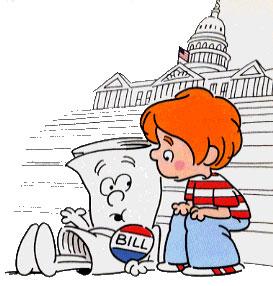
California Assembly Bill 2145 makes various amendments to the rules of forming and running a Community
Choice Aggregator (CCA) which is a local, public power utility that serves as
an alternative electricity supply to monopoly power companies. AB 2145 was introduced to committee in February but obtained recent infamy after it passed the Assembly floor in late May. While AB 2145 has gone through
many modifications some of the proposed amendments include limiting the size of
CCAs, increasing their reporting requirements and the most controversial,
removing CCA’s status as the default provider for municipality electricity once
approved. Proponents of the bill claim that CCA reforms are fair and necessary
to ensure transparency while those in opposition say the “reforms” will cripple
CCAs in order to protect existing monopolies. Whatever you’re opinion, the bill’s
transformation through the legislature is worth a closer look. Its path may
have critical implications about where the power truly lies in legislation.
Spoiler alert: it might not be where you think!
In my three part
piece I will examine what the bill might have done, the
factors that effected its creation and how what’s left will affect community
choice for years to come. Stay tuned!
Part 1: Bad Bill Defanged
Two weeks ago proponents of local jobs and clean energy across
CA gave a collective cheer as AB 2145, dubbed the Monopoly Protection Bill, was
robbed of its most threatening clause. The bill was viewed as an end to
Community Choice Aggregators (CCAs) which are the beloved alternative to
monopoly generated power.
As it stands right now, CCA serve as an alternative to
monopoly produced, no-choice electricity. Instead of accepting power from the
region’s mega-utility Pacific Gas & Electric (PG&E), Southern
California Edison (SCE) or San Diego Gas & Electric (SDG&E) small
governments have the opportunity to switch the provider of their constituent’s
energy to a CCA, a small public agency that buys electricity from mostly local
suppliers. CCA micro-utility generally have the mechanisms to provide electricity that
is more locally produced, more renewable and more cost effective than the state
regulated mega-utility. Sound to good to
be true?
Well, the secret to their success lies in 2 little words
“opt out.” When a CCA is voted in, the surrounding community is automatically
switched so the CCA becomes their default provider and rate payers are allowed
to “opt out” if they want to return to the monopoly generated electricity.
Having thousands of guaranteed customers gives CCA’s the economy of scale they
need for their micro to compete against a larger, established competitor.
Since the opt-out provision came to CA in 2002 two
successful CCA’s have launched, first in Marin County and second in Sonoma
County. Today, upwards of 6 more projects are on the table. While not without their
controversy, CCA’s are viewed by many as a critical and innovative tool in the
fight against climate change through competition.
Yet, if AB 2145 passed the senate in the form that it passed
the Assembly, the magic of the CCA would have fizzled. 62nd district
Assemblyman Steven Bradford sponsored the bill with an “opt in” clause that
would have forced each member of the community with an approved CCA to send in
notice that they wanted to opt into
the CCA. Imagine trying to get every
person to not only pay attention to their mail, but to actively respond to it!
Eric Brooks of the San Francisco Green Party speaks for the more than 200
organizations listed on the bill as opponents who say that this provision would
kill any CCA before it even started.
Of course, Assemblyman Bradford doesn't see it like that.
According to Bradford, this bill is entirely different than Prop 16, a failed
CA ballot measure pushed forward by PG&E that would have required a super
majority (2/3 vote) to form a CCA. Yet proposition 16 would have at least left
CCAs in the hands of citizens responsible enough to vote, not to entire
populations over-busy and overburdened with junk mail. Jamie Tuckey,
communications director of the CCA Marin Clean Energy, says that
expecting that type of initiative out of the populous is unrealistic, no matter
how much “climate zeal” they have.
Even so, Bradford maintains that his 4 year stint in the
Conservation Core outweighs his previous employment for Southern California
Edison and proves that Ab 2145 was not about monopoly protection at all, but
transparency and choice! This of course, assuming that Californians had a
choice in the current system of power company monopolies.
Regardless of Bradford’s intentions, it’s pretty clear that
AB 2145, as it passed through the Assembly, was a CCA-Kill Bill. Lucky for CCA
supporters everywhere, the “opt in” clause is now off the table. With that most controversial piece amended
out, it’s anyone’s guess if the bill will pass the Senate or what it will mean
for CCA’s if it does. But I am getting ahead of myself! Stay tuned for my next
installment as I look at how that dangerous clause made it so far through the
CA legislator and what eventually brought it down!
~Marla
~Marla



No comments:
Post a Comment